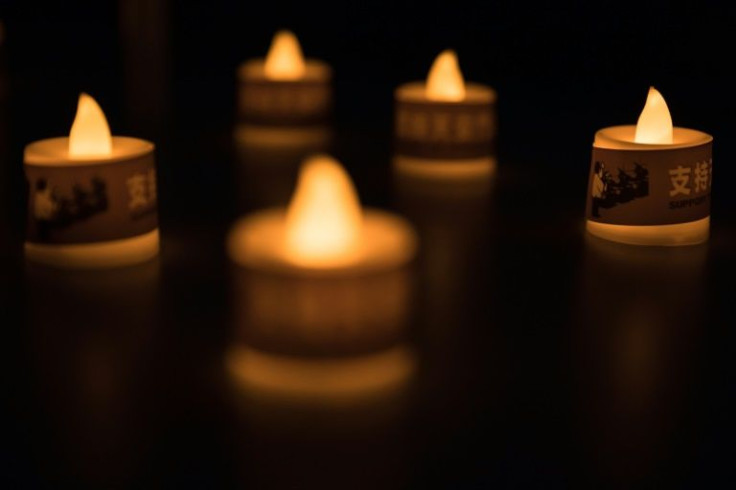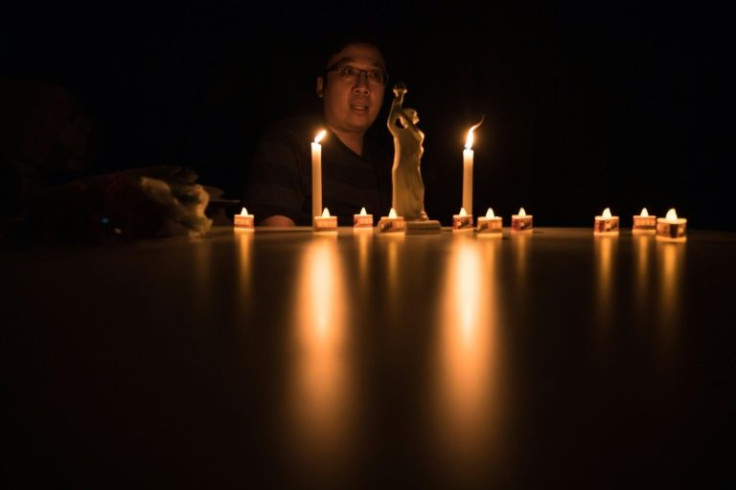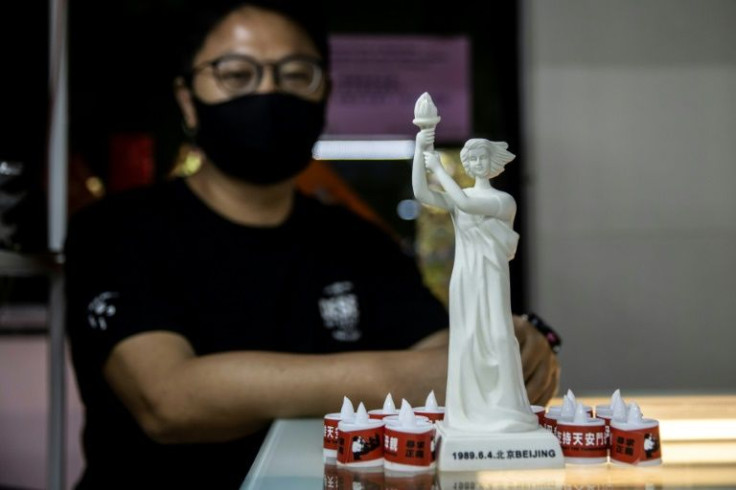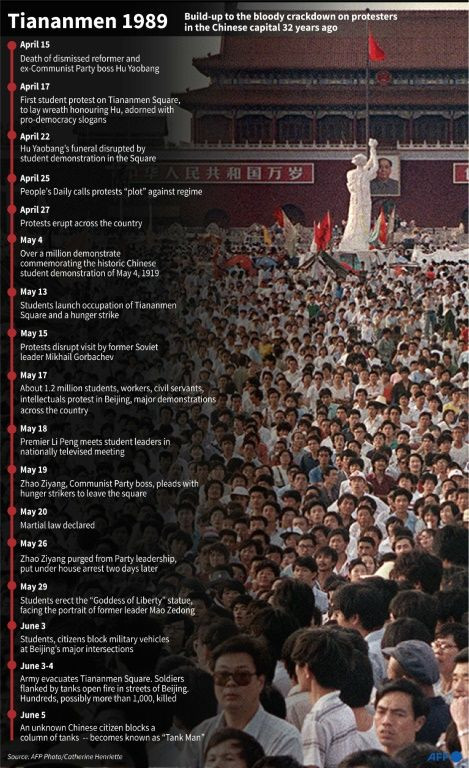With Tiananmen Gatherings Banned, Hong Kongers Remember In Private
As Saturday night fell in Hong Kong, democracy activist Chiu Yan-loy turned off the lights, lit a number of candles and observed a moment of silence to commemorate those killed in China's Tiananmen crackdown 33 years ago.
For the first time since 2000, when he started attending an annual vigil to mark the anniversary alongside tens of thousands of fellow Hong Kongers in the city's Victoria Park, Chiu was performing this ritual alone.
Hong Kong used to be the notable exception to an effective blanket ban in China on discussing the events of June 4, 1989, when the government set tanks and troops on peaceful protestors.

But in 2020, Beijing imposed a sweeping national security law to snuff out dissent after widespread and sometimes violent pro-democracy protests the year before. Since then, large-scale public remembrance in the city has been wiped out.
This is the third consecutive year that the vigil at Victoria Park has been banned, with the park closed late on Friday.
Police warned the public that gathering to commemorate Tiananmen anywhere risked breaking the law.
But "the emotional connection with June 4 that Hong Kong people have is far beyond attending any collective ritual", Chiu told AFP, his face illuminated by the flickering flames.

"It has become part of our life and it's now about how to practise what we believe in our everyday life."
The 36-year-old was a former standing committee member of the Hong Kong Alliance, a now-disbanded group that was one of the organisers of the Victoria Park vigil that had taken place for more than three decades.
The Alliance and its leaders were charged with "incitement to subversion" under the security law last year.

Chiu said people should not be disheartened by the situation in Hong Kong, saying it was not yet as bad as in eastern European countries under the Soviet Union's control, or Taiwan during its martial law era.
"We should not belittle ourselves," he said. "As long as we are willing to remember and pass it on, the truth will eventually come to light someday."
Chiu believes many Hong Kongers, like him, will find their own ways to commemorate June 4 despite warnings and threats from the authorities.
For him, the vigil itself was not the most important thing.

"The main body is after all the people who participated in it -- as long as our hearts and minds remain unchanged, we won't easily give up," he said.
Former district councillor Derek Chu, who had been handing out electronic candles from his office since Friday, also believes that remembrance does not have to be confined to a specific place.
"In the contest between a people and the government, it boils down to belief and memory, and the location is less important," Chu said.
Only 39 candles were handed out on Friday, he said, but he was not disappointed.
"Even at a low point of the (pro-democracy) movement, I don't think people will forget June 4," he said.
Decades of commemoration are being erased as Hong Kong is remoulded in the mainland's image.
Chu's alma mater, the Chinese University of Hong Kong (CUHK), removed a "Goddess of Democracy" statue from campus in December last year, saying the move was based on an assessment of legal risk.
Earlier this week, four CUHK students placed 3D-printed miniatures of the "Goddess" in different locations on campus, creating a treasure hunt for students and alumni.
"It feels like (the statue) was stolen," Rebecca, one of the students behind the project, told AFP, using a pseudonym to protect her identity.
"But the memories and meanings of the sculpture will not simply disappear after it was removed -- instead they rely on actions of passing them on."
The team had to axe the event halfway through its planned six-day run, as they noticed an increase in building staff at locations they had announced online.
Of the 32 miniatures they prepared, 23 were found by students, seven were lost, one was damaged with its head broken off, and one's whereabouts are unknown.
Rebecca said she had first learned about Tiananmen in secondary school, when her teacher insisted that students learn about it even though it was not an exam requirement.
"I was told that when I became an adult and could be responsible for myself, I should attend the candlelight vigil, but I haven't had a chance," she said.
"I still hope someday I can be part of it."
© Copyright AFP {{Year}}. All rights reserved.





















